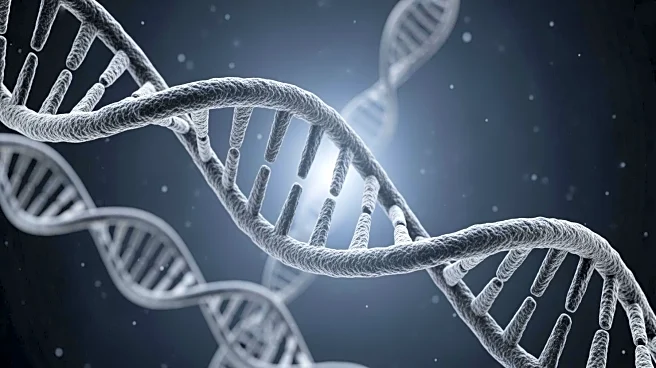What's Happening?
Recent research has focused on the black soldier fly, Hermetia illucens, a species increasingly used in waste management due to its ability to consume organic waste. The study compared high-quality chromosome-level reference genomes from the Stratiomyidae
and Asilidae families, revealing significant evolutionary adaptations in the black soldier fly. These adaptations include expansions in gene families related to metabolism, immunity, and olfactory functions. The research highlights the role of transposable elements (TEs) in driving these evolutionary changes, with recent activity noted in DNA, LINEs, and LTRs. The study also suggests that the domestication of Hermetia illucens has led to specific adaptations, such as increased efficiency in processing starch-rich diets, which are not observed in its close relatives.
Why It's Important?
The findings are significant as they provide insights into how the black soldier fly has adapted to human-influenced environments, making it a valuable species for bioconversion of organic waste. The expansion of olfactory and immune-related genes may explain its dominance in composting environments and its symbiotic relationship with diverse gut microbiota. Understanding these genetic adaptations can enhance the use of Hermetia illucens in sustainable waste management practices, potentially reducing reliance on traditional waste disposal methods. Additionally, the study contributes to broader knowledge on insect evolution and the role of TEs in genome expansion and adaptation.
What's Next?
Future research may focus on further exploring the specific functions of the expanded gene families in Hermetia illucens, particularly those related to detoxification and diet adaptation. This could lead to improved strategies for utilizing the black soldier fly in waste management and other industrial applications. Additionally, understanding the genetic basis of its adaptations could inform breeding programs aimed at enhancing desirable traits in this species.
Beyond the Headlines
The study of Hermetia illucens also raises questions about the ethical implications of insect domestication and the potential environmental impacts of large-scale use of this species in waste management. As the black soldier fly becomes more integrated into industrial processes, considerations around biodiversity and ecosystem balance will be important to address.

















